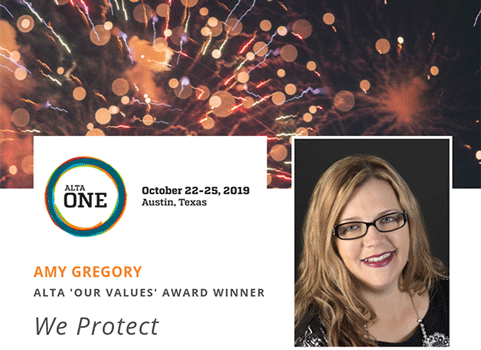By Elyce Schweitzer, Esq., Regulatory Compliance Officer, Alliant National; andValerie J. Grandin, Esq., Sr. Underwriting Counsel Florida and Vice President, Alliant National Here’s a riddle for the title insurance and real estate industries: what does Dolly Parton’s song, “Here You Come Again” have to do with FinCEN, its Geographic Targeting Orders (GTOs), and its Final Real Estate Report Rule (Final …
Deepfake Dangers: How AI Trickery Is Targeting Real Estate Transactions
From Sci-Fi to Real Life: The Evolution of Deepfake Technology Once upon a time, the idea of digitally swapping faces or creating hyper-realistic videos of people saying things they never actually said was confined to Hollywood blockbusters. Think of movies where actors were digitally de-aged or deceased celebrities made surprising cameos. However, in 2017, a new term hit the internet: …
Your Advantage: Building Success With South Florida Agency Manager Tracy Pace
Many find it difficult to remember what led to important phases of their careers. Tracy Pace doesn’t have that problem. Her journey to the title industry began during a national tragedy that forever imprinted itself in our collective memory. “I had been working as an executive at a New York-based cosmetics company,” she said. “After September 11th, our business declined, …
A Claims Tale: All Mortgages Are Not Created Equal – HELOC Mortgage Payoff
Dealing with mortgages and deeds of trusts in a transaction seems fairly easy to address at a closing, you would think. On occasion, we see a security instrument known as the Home Equity Line of Credit (HELOC) Mortgage or Deed of Trust – a revolving credit line secured by the home’s equity – that is not treated the same way …
Quality Commitments Satisfy Underwriters and Customers – When Done Right That Is
You can’t go wrong being educated, prepared, and mindful. When writing about quality commitments we have two main goals: quality and excellence. Basically, we want to be sure we are producing superior commitments and policies. But who decides whether or not we’ve attained these goals? The first answer is our underwriters. They’ll be looking to ensure that the quality commitment …
Optimizing Opportunity at the Closing Table
Showcase your firm’s strengths at the closing table. Many title agents spend money and time on marketing and sales efforts to increase directable business. While most campaigns are effective, and certainly essential, one of the best opportunities to showcase your firm’s strengths is at the closing table. A well thought-out and unique closing table strategy will result in increased referral …
Inquire Before You Wire
Amy Gregory has a passion to protect, and when a customer at Paramount Title was defrauded of $130,000, Amy pulled out all the stops to track down the funds and then went above and beyond to ensure no customer of hers would ever fall victim to wire fraud again. Our story begins with an innocuous email delivered to our homebyer …
Flagging Fraud (Part 1): Know These Indicators of Transaction Fraud
Every year the U.S. government comes out with a growing list of warnings on cyber fraud, real estate fraud, email fraud – the list goes on. Some warnings are common sense: delete suspicious-looking emails, don’t give away banking information or social security numbers, never wire anyone money without triple checking – and then checking again. We’re committed to ensuring that …
- Page 1 of 2
- 1
- 2












